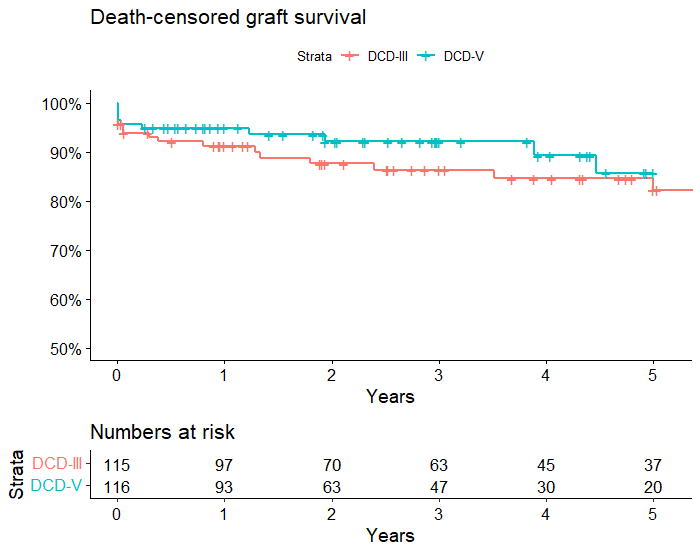Kidney transplant outcome following donation after euthanasia: A Dutch national cohort study
Julia Slagter1, Diederik Kimenai1, Hanneke Hagenaars1, Jacqueline van de Wetering2, Marlies Reinders2, Wojiech Polak1, Robert Porte1, Robert Minnee1.
1Department of Surgery, Erasmus MC Transplant Institute, , Rotterdam, Netherlands; 2Department of Internal medicine, Erasmus MC Transplant Institute, Rotterdam, Netherlands
Background: For patients terminally suffering from neurodegenerative or psychiatric diseases, it is possible to donate their organs after euthanasia (ODE). The procedure is legally and ethically complicated, and only permitted in very few countries around the world. So far, the outcomes from ODE kidney grafts have not been investigated in a large population. To ascertain if ODE is a valuable option to expand the donor pool, it is important to determine the outcomes of these organs.
Methods: The database from the Dutch Transplantation Foundation was accessed from the start of the ODE program (September 2012) till June 2023. Both the short- and long-term outcomes from kidney grafts donated after standard donation after circulatory death (DCD) and ODE were compared. A propensity score matching was performed to correct for possible confounders.
Results: A total of 142 ODE kidneys were transplanted and compared to 2144 DCD kidney transplants. ODE was increasingly performed over the past years. Time from withdrawal of life support/administration of euthanasic drugs until cardiac arrest was significantly shorter in the ODE group compared to the DCD group (14.5 ± 5.7 versus 24 ± 19 min p<0.001). Delayed graft function (DGF) occurred significantly less in the ODE group compared to the DCD group (23.2% versus 51.4%, p<0.001). Serum creatinine in the ODE group was lower at 1-, and 3 years post-transplantation, although this did not reach statistical significance. Five year death-censored graft survival was 86% in the ODE-group, compared with 82% in the DCD group (p=0.32, Figure) and five-year patient survival was 71% in both groups (p=0.39).
Conclusion: Kidney grafts donated after euthanasia yield favorable short-term outcomes and comparable long-term outcomes to DCD kidney grafts. ODE is a valuable way to both increase the kidney donor pool, as well as granting the final wish of these terminal ill patients.

[1] Kidney transplantation
[2] Euthanasia
[3] Graft survival
[4] Patient survival
